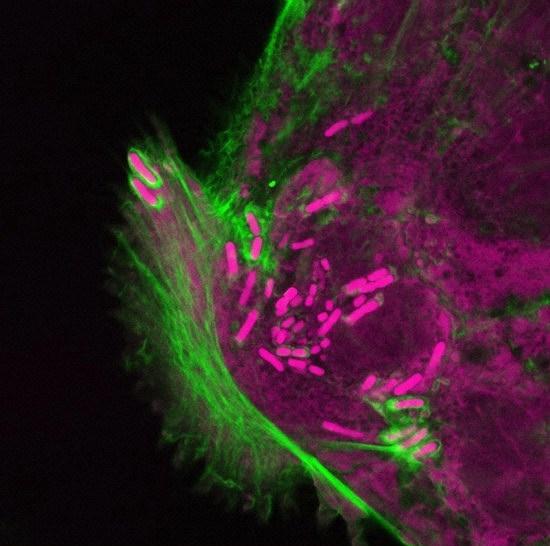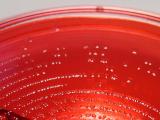Nearly a quarter of Shigella isolates tested in New York City showed decreased susceptibility or resistance to recommended antibiotics, and most of those infections were among gay men, researchers reported today in Emerging Infectious Diseases.
For the study, investigators from the Centers for Disease Control and Prevention (CDC) and the New York City Department of Health and Mental Hygiene performed susceptibility testing on 978 Shigella isolates submitted to New York public health laboratories from March 2013 through May 2015; 295 of those isolates were linked to an outbreak and analyzed separately, and 683 were defined as sporadic.
Among the patients with sporadic infections, 129 (19%) were infected with isolates showing decreased susceptibility to azithromycin (DSA), while 29 (4%) were infected with ciprofloxacin-resistant isolates and 5 isolates displayed both characteristics.
Because Shigella spp. has grown resistant to ampicillin and trimethoprim/sulfamethoxazole, physicians often prescribe azithromycin and ciprofloxacin to treat shigellosis. The proportion of isolates found with decreased susceptibility to azithromycin is nearly five times the national estimate of 3.8%, the authors of the study said.
Nearly all infections analyzed in the study were caused by Shigella sonnei (65%) and S flexneri (34%). The most common symptoms were diarrhea and abdominal cramps, and median illness duration was 7 days.
Rise of drug resistance in MSM
Shigellosis is a common diarrheal disease caused by Shigella bacteria, which is highly contagious and is passed through a fecal-oral route. Shigella infection often occurs from eating food contaminated by people with shigellosis, and is associated with travel to disease-endemic areas, crowding, poverty, and attendance at daycare centers.
But Shigella infections can also be spread through oral-anal sex, and research indicates men who have sex with men (MSM) are more likely than the general adult population to acquire shigellosis. Of even greater concern, a recent study from the CDC detailed evidence of rising resistance to azithromycin and ciprofloxacin in shigellosis outbreaks among gay men.
"Although shigellosis rates are highest for young children, most reports document ciprofloxacin- or azithromycin-resistant shigellosis largely among men who have sex with men," the authors wrote in the study.
The current study supports that trend. Patient interviews and chart reviews showed that DSA Shigella infection occurred almost exclusively among men, most identifying as MSM. In addition, many patients with DSA Shigella infections had HIV as well. Of these, few reported travel to disease-endemic areas, which suggests local transmission.
"HIV-positive MSM may be at increased risk for acquiring infections caused by antibiotic-resistant Shigella spp. due to transmission-facilitating behavior or because of increased exposure to macrolides and fluoroquinolones used to treat sexually transmitted infections, which could increase selective pressure on Shigella organisms," the authors write.
To limit the emergence of resistance, the NYC Department of Health and Mental Hygiene and the CDC recommend that antibiotics be avoided in treating Shigella infections except for severe illness. Although Shigella infections are generally self-limited, the authors note, selection for resistant organisms could lead to treatment complications for those with more serious infections.
Shigella infections among MSM in Taiwan
In a related study today in Emerging Infectious Diseases, investigators report an outbreak of azithromycin-nonsusceptible S flexneri infections in Taiwan associated with MSM.
From June 2015 through May 2016, a total of 200 shigellosis cases were reported to a national disease surveillance system, of which 21 were domestically acquired S flexneri serotype 3a infections in northern and central Taiwan. All 21 of the infections were in men 22 to 44 years of age, including 17 self-identified MSM. Most of the patients had reported other sexually transmitted infections before the S flexneri 3a diagnosis, including HIV, gonorrhea, and syphilis.
Of the 21 isolates tested for antibiotic resistance, 19 were nonsusceptible to azithromycin, and all 21 were resistant to ampicillin, chloramphenicol, streptomycin, and tetracycline. Genetic sequencing showed 4 of the isolates belonged to sublineage A of an MSM-associated outbreak lineage previously reported in 29 countries.
"The introduction of this MSM-associated S flexneri 3a lineage into Taiwan in 2015 illustrates that the pathogen can spread rapidly across continents, possibly through intensified sexual networks among MSM," the authors write.
See also:
Jan 10 Emerg Infect Dis dispatch
Jan 10 Emerg Infect Dis letter
Aug 11 CIDRAP News story "Drug-resistant Shigella on the rise in gay men"

















